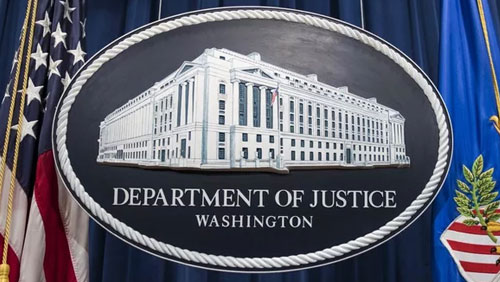If anyone is starting to get tired of hearing about the U.S. Federal Wire Act and the Department of Justice (DOJ), sorry—things are just getting rolling and there will be much more to follow. The lid has only been unscrewed a little and is about to be blown off in spectacular fashion.
 In case anyone hasn’t heard about the most popular, and controversial, story in the U.S. sports gambling world, the DOJ recently backpedaled on a long-held opinion regarding the Wire Act, which, among other things, prevents interstate money transactions. The DOJ had previously asserted—almost nine years ago—that the legislation, as it applied to gambling activities, only considered sports gambling. This past January, however, it somehow managed to decide that it has been wrong all of this time and that the Wire Act applies to all forms of online gambling.
In case anyone hasn’t heard about the most popular, and controversial, story in the U.S. sports gambling world, the DOJ recently backpedaled on a long-held opinion regarding the Wire Act, which, among other things, prevents interstate money transactions. The DOJ had previously asserted—almost nine years ago—that the legislation, as it applied to gambling activities, only considered sports gambling. This past January, however, it somehow managed to decide that it has been wrong all of this time and that the Wire Act applies to all forms of online gambling.
The outrage following the DOJ’s reversal was swift and wide-reaching. Many wondered how it would be possible for the top law enforcement department in the country to suddenly decide to change course on a topic so sensitive, coincidentally after sports gambling became legal across the U.S. The immediate reaction, which was based on certain assumptions and intuitive deductions, was that someone in the gambling industry—perhaps someone like outspoken online gambling opponent Sheldon Adelson—forced the DOJ to reverse its stance.
New Hampshire, through the New Hampshire Lottery, has already announced that it is suing “the U.S.A.,” along with U.S. Attorney General William Barr and the DOJ. Soon after that lawsuit was launched, New Jersey and Pennsylvania got onboard, and now Michigan is rallying for the cause, as well. The Michigan Lottery has filed an amicus brief, which gives it the right, if approved, to participate in the lawsuit.
The amicus filed by Michigan goes even further than the state’s boundaries. It includes a total of 11 states and the District of Columbia (D.C.). The amicus includes entities in Kentucky, Tennessee, North Carolina, Delaware, Colorado, Rhode Island, Virginia, Idaho, Vermont, Alaska, Mississippi and D.C. This is going to put a lot of pressure on the DOJ as it is forced to explain its position and there is no doubt that the true story behind its decision will come to light.
New Jersey argues, in its addition to the lawsuit, that the courts “can and should grant relief that reaches beyond the parties and the District of New Hampshire, and that protects the interests of third-parties like New Jersey nationwide. Under the Declaratory Judgment Act, the Court should declare that the Wire Act does not cover non-sports-related gambling in any jurisdiction, and under the Administrative Procedure Act, the Court should vacate the DOJ’s 2018 reinterpretation of the Wire Act as null and void.”
The DOJ was wrong in changing its opinion. It should be blatantly obvious that it was influenced by someone on the outside, given the timing of the reversal, which has even scarier connotations beyond the future of gambling in the U.S. If the top law enforcement agency can be bought on this topic, who’s to say it can’t be bought on other topics, as well?